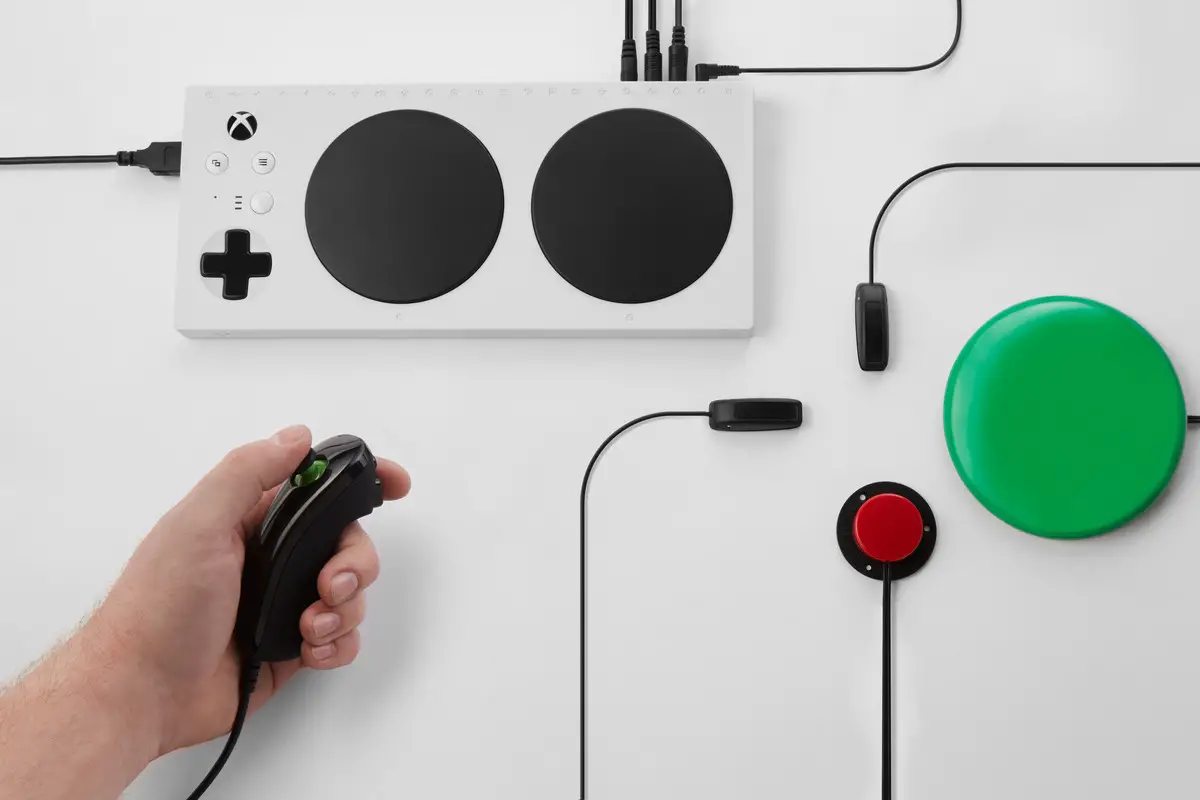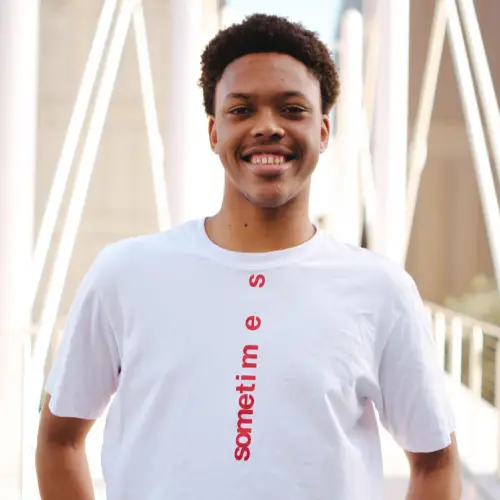After an image of the controller leaked on Twitter early last week, Microsoft came forth with an official announcement of the new gadget, which isn’t a console as many gamers may have hoped for, but a controller built for accessibility.
The Adaptive Controller, which is built for use by gamers with limited mobility, sports white rectangular casing with large black A and B pads, and is rounded out with other classic Xbox-style buttons like the D pad, left and right triggers and the Xbox navigation button.
Additionally, a statement released by Microsoft says that the controller will feature fully programmable buttons and up to 19 connection ports for external switches, joysticks and buttons, giving users a fully customizable controller experience unlike any other in gaming.
Not only does this provide easier navigation for handicapped users, but it opens up new possibilities in terms of community gaming by way of hosting multiple players and their own unique controllers on one platform.
On the heels of the announcement, a series of YouTube videos have been released by Microsoft providing further insight into what the controller is all about. One video gives a brief history of how the controller came to be, both conceptually and physically, while two other videos give an in-depth look at how the controller’s additional connection ports work and the other serves as an intimate introduction to the new controller experience featuring differently-abled gamers using the controller and explaining the logistics behind gaming while handicapped.
As Senior Xbox Designer, Chris Kujawski explains in “Xbox Adaptive Controller: A Brief History,” there is a large audience of users who want to play video games, but restrictive hardware has historically blocked that ability.
Bryce Johnson, a member of Xbox’s inclusion design team adds that Xbox controllers assume that each user has two thumbs, one for each joystick, fully extendable index fingers for each trigger, and the motor strength and range of motion to be able to operate all of a controller’s buttons at high speeds. The goal for the Adaptive Controller is to change that.
“There’s three principles to inclusive design,” he says. “Recognize exclusion, learn from diversity, and solve for one then extend to many.” This approach to expand upon their traditional hardware taken on by Microsoft has been a challenge within itself.
The task required the team to start completely from scratch and rethink the packaging, functionality and ease of use of their gaming controllers. Nonetheless, when taken into consideration the opportunity to open up gaming for an entire community of users who have until now been neglected, “It becomes a no-brainer,” says Kujawski.
The technology company has touted the controller as an opportunity for “gaming for everyone,” regardless of ability. While technology has undoubtedly made everyday life more simple, one market that has fallen behind the trend of making these kinds of amenities available for everyone is gaming.
Since the beginning stages of the iPhone age, users saw Apple introduce accessibility programming with iPhone operating system 3.0 in 2012. Since then, the operating system has grown to come handy with voiceover options for visually impaired users, assistive touch for those who may have difficulty touching the screen or require an adaptive accessory, and hearing aid and sound processors specifically for iPhone and iPad.
Aside from mobile phones, domestic car companies like Toyota, Lexus and Kia have committed themselves to transportation accessibility by equipping their vehicles with motorized wheelchair lifters and even creating their own mobile apps for hands-on assistance for handicapped drivers. Additional measures have been taken in transportation by airlines like Southwest and airports around the world to provide people with the disability services they may need.
For the first time, Microsoft is bringing an outlook of inclusion to the world of gaming via the Adaptive Controller. Never has an effort at tailoring the gaming experience for users who may be mobility impaired been made to this extent.
Inevitably, gamers around the world took to the Internet to express sentiments of celebration and progress around the announcement of the new product. Co-creator behind indie-game studio Vlambeer, Rami Ismail tweeted “This should be an option that is available at any console launch, and while it is a little late, I am super happy seeing @Xbox invest in accessibility with things like this Adaptive Controller.”
This should be an option that is available at any console launch, and while it is a little late, I am super happy seeing @Xbox invest in accessibility with things like this Adaptive Controller. https://t.co/GjalroRG8g
— Rami Ismail (رامي) (@tha_rami) May 17, 2018
Sharing his excitement was iZombie and SuperGirl actor, Rahul Kohli who tweeted “Those folks @Xbox win my heart today with the announcement of an adaptive controller that allows users with disabilities to customise and tailor fit their controls in order to play. Gaming is and should be for everyone, Xbox are helping to make that possible.”
Accessibility matters because it allows disabled gamers to hang onto a piece of their identity beyond their own impairments or handicaps. No matter what their ability, everyone deserves the right to enjoy something as simple as a video game and lack of hardware or innovation cannot be a justification for denying that access either. Hopefully, with Microsoft recognizing that and taking action about it will inspire a spark of new technological developments for diverse audiences in gaming and beyond.
According to Microsoft, the Adaptive Controller will be released later this year, retailing for $100 USD. Fans of the console can expect a full preview of the controller and all of its capabilities at this year’s Electronic Entertainment Expo, better known as E3 in Los Angeles, an international gaming conference where tech companies and gaming studios show off their latest releases and reveal future announcements as well.
This year, many eyes are on Nintendo as they approach the second year rollout of their hybrid platform the Nintendo Switch and Sony who is an annual heavyweight behind the PlayStation and the many innovative games that come with it each year. But, with the pre E3 announcement of the Adaptive Controller, Microsoft may have stolen the show before it even began.

















